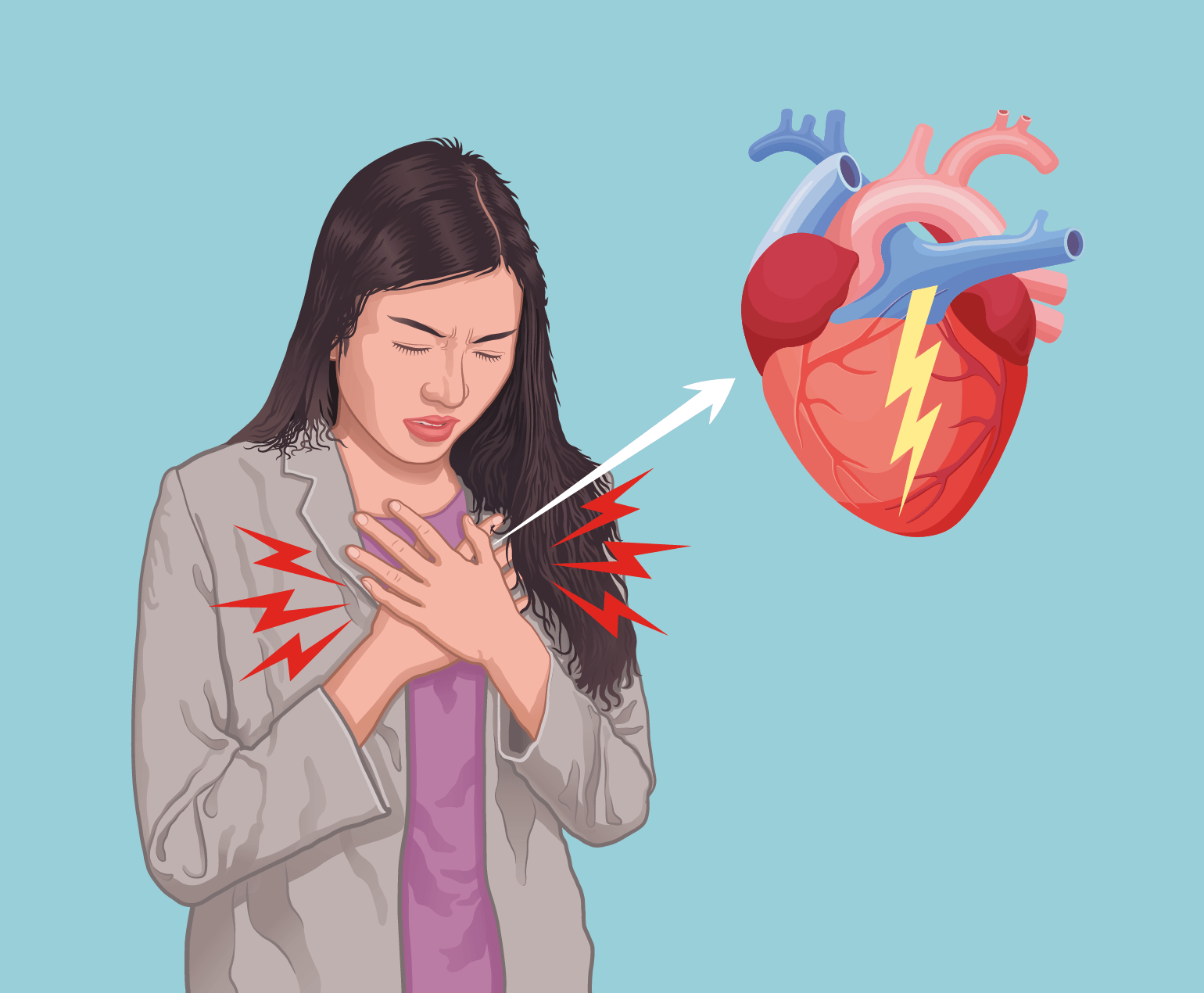It is generally considered that heart disease affects men more than women. However, coronary heart disease is a leading cause of death for both men and women, though the symptoms may be different for both. According to research, cardiovascular disease accounts for 1 in every 3 deaths around the world.
Women and men experience heart disease differently due to the differences in the respective cardiovascular system. For example, women have smaller heart chambers and blood vessels than men. They have lesser number of red blood cells and cannot take in as much oxygen as men. Sudden drop in blood pressure and fainting are more likely in women.
Oestrogen and progesterone hormones are dominant in women, while in men it is the testosterone hormone. These also impact heart health differently.
Identification of heart disease in women
In women symptoms of cardiovascular disease are generally noticed much later than in men. The most common symptom is chest pain or angina which may feel like heaviness, pressure, aching, numbness, squeezing, etc.
Other symptoms usually observed include fatigue, breathlessness, heart palpitations, nausea, sudden sweating, etc. Anxiety, loss of appetite, frequent indigestion, intense headache and discomfort in the jaws or teeth, are other warning signs of a possible heart attack.
Women are also at higher risk for having a silent heart attack, that is an attack without any visible symptoms.
Hence, it is very essential to get medical help whenever any unusual symptoms are noticed to prevent the chances of heart attack.
Risk factors for heart disease in women
While risk factors like high cholesterol and high blood pressure affect both men and women, women face certain unique risks that affect them more. These include the following:
- Obesity: During menopause women face greater risk of obesity and gaining abdominal fat which puts them at higher risk of heart disease.
- High cholesterol: In women aged 65 and above, low level of HDL or good cholesterol is closely linked with death, more than in men.
- Diabetes: Women with diabetes have a much greater risk of developing cardiovascular disease than men with diabetes.
- Hypertension: Hypertension or high blood pressure has been found to be linked more closely with heart attacks in women than in men.
- Family history: Instances of early heart disease in the family cause greater risk to women than men.
Reducing the risk of heart disease
According to Dr. Ramji Mehrotra, it is very important to adopt a healthy lifestyle in order to reduce the risk of heart disease. A healthy diet with whole grains, vegetables and fruits must be consumed. Saturated fats and high amounts of salt and sugar must be avoided to maintain good health.
Regular exercise is a must, especially for women who are overweight, in order to reduce the risk of heart disease. Stress must be kept under control with meditation and yoga, as high levels of stress have been found to cause microvascular disease.
In addition, other health conditions such as high blood pressure, diabetes and high cholesterol should be managed by regular consultations with the medical practitioners.
By following the above guidelines, heart disease can be prevented in women and they can lead healthy lives.

